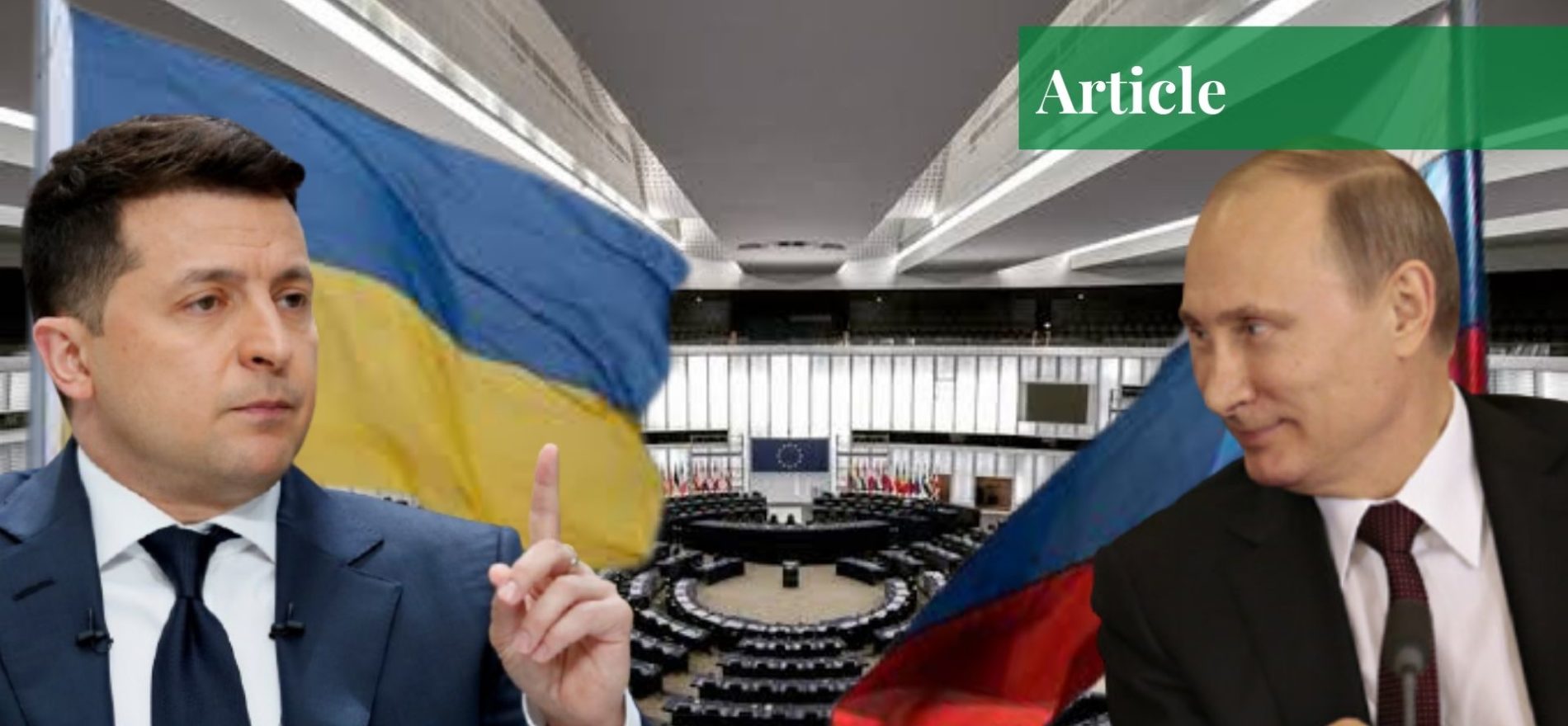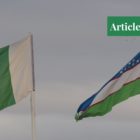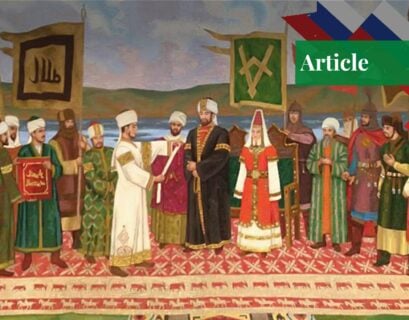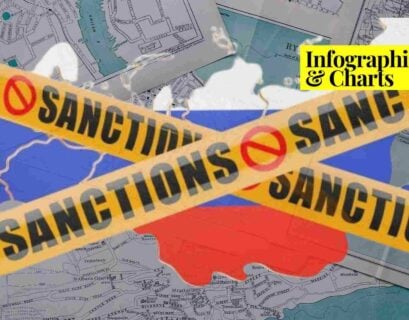Fatima Musa Malik holds an LL.B (Hons) degree from the University of London. She is keenly interested in international and Pakistan affairs.
Introduction
After the full-scale military operation declared by President Putin on 24th February, Moscow launched several aerial attacks, along with the deployment of ground forces, on Ukrainian territories. The Russian war in Ukraine amounts to a clear breach of Article 2(4) of the United Nations Charter. Article 51 of the UN Charter gives Ukraine a right to resort to self-defense. As per international law, the United Nations Security Council (UNSC) can resort to both military and non-military measures to regulate the current scenario as a major peace-keeping body.
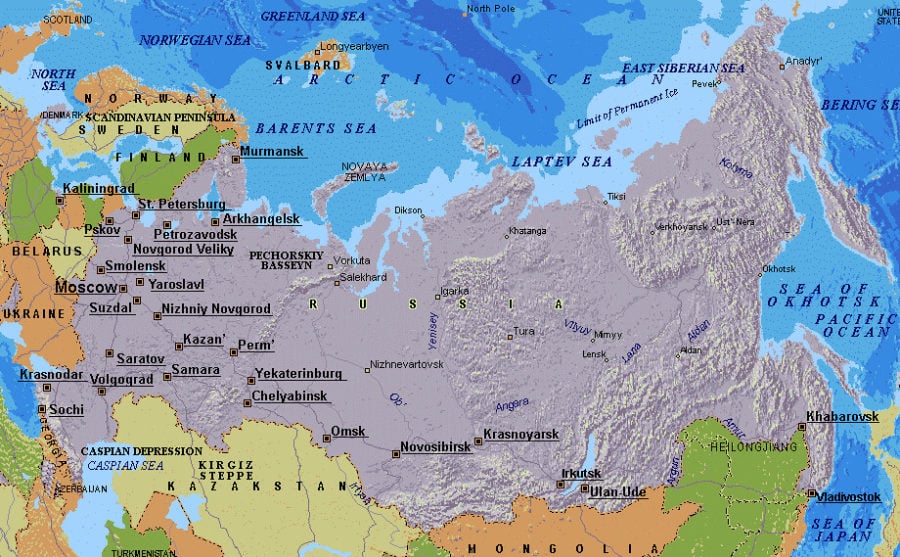
However, the question is, can the UNSC step in to authorize the use of force in Ukraine under collective self-defense? Is there any other alternative to the UNSC’s deadlock? Will the United Nations General Assembly (UNGA) be able to save the sinking boat? Lastly, can Russia rely on international law to save its day?
The Russia-Ukraine War
Since the end of January 2022, the situation in Ukraine was screaming about the impending full-blown invasion. On 24th February 2022, Russia finally moved its troops to invade the neighboring country, causing alarm and panic in the Western world. The West fears another war in Europe whereas, Russia justifies its actions under the umbrella of national interests.
All eyes are on the UN to solve the issue peacefully. The UN General Secretary strictly condemned the Russian invasion and urged Putin to draw back his troops. The international community has labeled it as a blatant violation of international law. To see what international law says one must look at the primary source of international law i.e. the UN Charter.
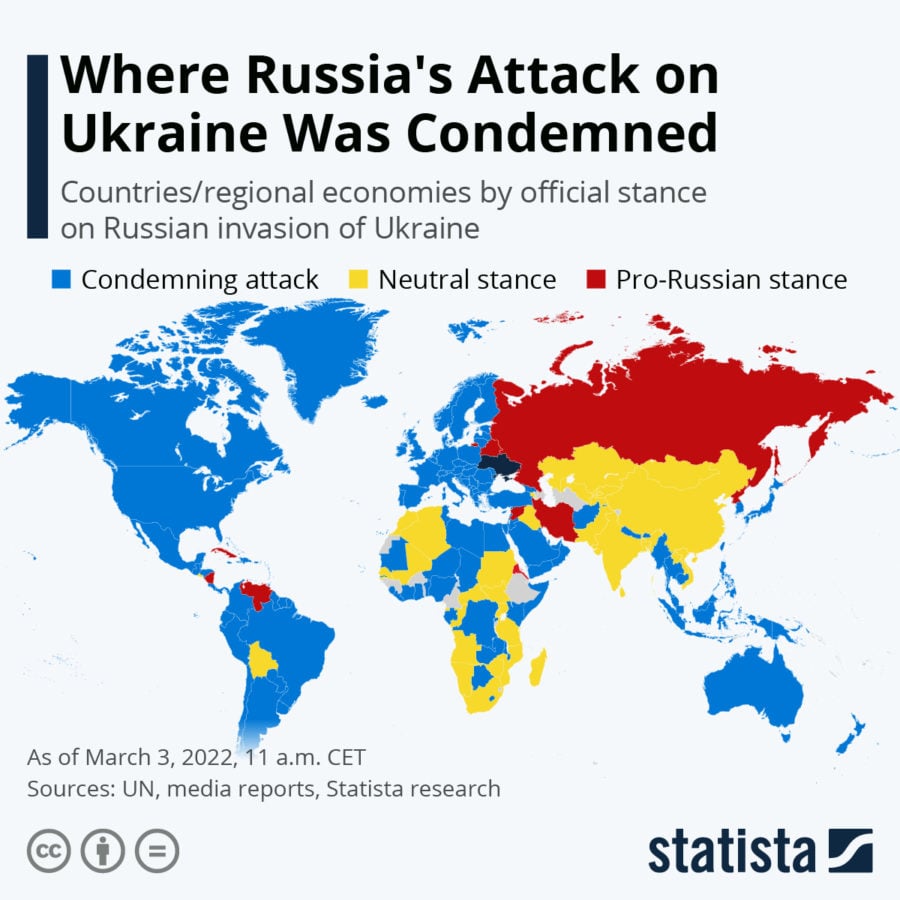
What Does Article 2(4) of the UN Charter Say?
Article 2(4) of the UN Charter states, “All Members shall refrain in their international relations from the threat or use of force against the territorial integrity or political independence of any State, or in any other manner inconsistent with the Purposes of the United Nations.”
This article says that states should refrain from any sort of “use of force” against any other state. Even posing a threat to “territorial integrity” and “sovereignty” would amount to a breach of Article 2(4), save in circumstances established in Article 51 of the UN Charter. The question here is, what amounts to the use of force? The use of force, as per international law, predominantly entails direct or indirect armed attack and not political or economic sanctions.
In the pertinent case of the Russia-Ukraine war, the military operation announced by Russia on 24th February and its airstrikes and troops deployment on the same day, amount to an armed attack which is a flagrant violation of Ukrainian sovereignty and territorial integrity, resulting in the breach of Article 2(4) of UN Charter.
How Does the UNSC Function?
The United Nations Security Council (UNSC) is the key organ of the UN to maintain peace and order in the world. All the resolutions passed by the UNSC are binding upon the states. UNSC has a total of 15 members out of which only 5 are permanent members that possess veto power, whereas, the other 10 members are non-permanent members. The five members possessing the power to veto are the US, Britain, France, Russia, and China.
Article 39 under Chapter 7 of the UN Charter explicitly states that the UNSC shall be the body to navigate any threat to peace, breach of peace, or act of aggression that has taken place. Chapter 7 further stipulates the actions that can be undertaken by the UNSC to maintain peace and stability in the international community. The actions may entail non-forcible measures (Article 41) like negotiations and the use of economic sanctions, or forcible measures (Article 42) like a military intervention.
Ukraine’s Right to Individual & Collective Self-defense
Article 51 of the UN Charter allows individual and collective self-defense in case of an armed attack against a member state. “Retaliation” when expressed by a single state, alone, is referred to as “individual self-defense,” but in situations where two or more states jointly take an action, upon the request of the victim state, against the perpetrator state, it is called “collective self-defense.”
The assisting states in the aforementioned scenario need not be directly under threat or, for that matter, be the actual victim of the armed attack. The most frequently cited situation of collective self-defense is of the Iraq-Kuwait war. In this case, Kuwait’s western allies came to collectively defend Kuwait from the Iraqi invasion, under this doctrine, after the UNSC’s approval.
It is very important to remember that for collective self-defense, assisting states must report the issue to the UNSC as soon as possible and they must pay heed to the UNSC’s directions as soon as the Security Council gives any. Until then, they can take immediate actions to defend the victim state.
In the current scenario, Ukraine has an inherent right to self-defense. President Zelensky declared to exercise it in his speech on the 24th of February 2022. He stated that Ukraine will protect itself from the attacks on its sovereignty and territorial integrity. He also urged the international community to step in to help Ukraine fight the war waged upon it by the Russian Federation.
The requirements for collective self-defense set in international law ostensibly meet with the Russian war in Ukraine. There is an actual armed attack against Ukraine, and the Ukrainian authorities have urged the international community to help Ukraine fight the Russia-Ukraine war. However, there is no response whatsoever from NATO or any other peacekeeping body.
UNSC at a Deadlock
The air at the UNSC this time yet again reminds us of the Cold War era. During that time, since Russia and America were archenemies, the UNSC couldn’t function properly. If a resolution aligned with the Western interests, Russia would veto it. Russia did not abstain from vetoing during the Syrian War either.
Russia was seen flagging up its veto during the Security Council meeting to pass a resolution against Assad’s regime and his gross inhumane bombings of Syrian civilians. This problem remains relevant in the contemporary case. Russia or China will probably veto any UNSC resolution detrimental to their interests or in favor of Ukraine.
Ian Brownlie, an international law expert, writes that as a matter of law, any member state found violating Article 2(4) itself cannot be called to the UNSC to acknowledge a breach against itself. However, it can be called to stop the violation. Hence, as per international law, Russia cannot pass any decision for or against itself.
Nevertheless, some academics are of the view that this only applies to situations described under Article 27(3) and is not applicable to Chapter 7 of the UN Charter. Whatever the case may be, the UNSC will ultimately find itself in a paradox. If the UNSC is rendered redundant in this situation then what other options does the international community have?
The doctrine of humanitarian intervention is considered as an alternative solution. However, since this doctrine is not a part of the UN Charter, many academics do not support it while others deem it a part of state practice, thus, falling in the realm of international law.
NATO’s intervention in Kosovo in 1999 and the immense bombing of Serbia were carried out under the doctrine of “humanitarian intervention” to prevent the Albanian genocide. Although in order to use coercive measures internationally, the UNSC must authorize the coercive actions. However, in Kosovo’s case, the North Atlantic Treaty Organization (NATO) took action without the Security Council’s approval.
The UK’s representative in the UN argued that in order to prevent a humanitarian catastrophe, the UK will have to intervene in Kosovo. Academics later labeled intervention in Kosovo without prior authorization as “illegal”. The position on humanitarian intervention was further discussed during the Syrian War when the Security Council once again found itself in deadlock.
The UK, in 2013, again argued that even if the UNSC does not authorize the use of force, the UK must intervene on humanitarian grounds in Syria. In the Syrian chemical bombing case, due to the parliament’s reluctance, no forcible measure was taken by the UK. Thus, the aforementioned reasons make this doctrine controversial.
In the Russian war in Ukraine, the latter is facing a crisis where major chunks of land are being grabbed, missiles are being rained on the big cities, and even a nuclear plant known as Chernobyl has been captured by the Russian military forces. It may be argued that there is an imminent humanitarian crisis looming over Ukraine.
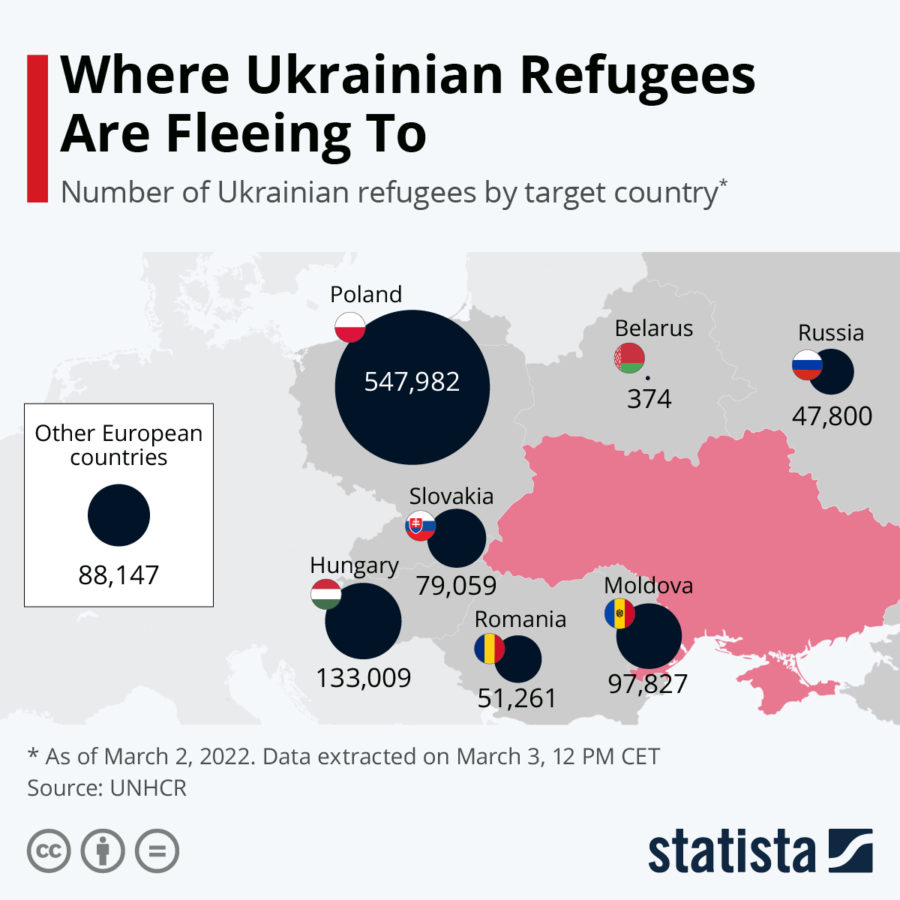
Many scholars are arguing that it seems that states cannot take action by using this doctrine because for them to use it, the oppressive regime must be conducting humanitarian abuse in their own territory and not in the neighboring ones—as was being done in Syria and Serbia. Nonetheless, this argument about the territorial issues remains contested by other academics making the area vague.
In the end, it must be remembered if an arbitrary approach is taken in the Russia-Ukraine war by the Western allies, it will further blur the international restrictions encapsulating the doctrine of “use of force” and making the law more prone to breach.
Can the UNGA Be a Ray of Hope in This Conflict?
Although the UNGA does not possess a binding authority like the UNSC, it still is of paramount importance, especially in the given situation if the international community wants to act lawfully. As per the Uniting for Peace resolution (U4P), otherwise known as the General Assembly Resolution 377(v), the General Assembly is the most appropriate forum in cases where the Security Council finds itself in a conundrum.
Resolution 377(v) was put to use during the Cold War to evade this cycle of paradox. It states, “if the Security Council…fails to exercise its primary responsibility for the maintenance of international peace and security…, the General Assembly shall consider the matter immediately with a view to making appropriate recommendations to Members for collective measures.”
Through this mechanism, the perpetrator state could be held accountable via imposing sanctions, condemnation, and in some cases, by establishing tribunals to sanction those involved in the violation of the law. However, the General Assembly need not only rely on Resolution 377.
By the virtue of Article 10 and Article 11 of the UN Charter, the UNGA can make recommendations pertaining to international peace and security without resorting to the use of force, which should be left to the UNSC to decide—as per Article 11(2). Thus, the UNGA can use its normal powers under the UN Charter without referring to U4P.
On 2nd March 2022, the UNGA called its session to pass a resolution on the situation. During the session, a considerable number of states voted to isolate Russia over the war in Ukraine and demanded that it retrieve its troops from the Ukrainian territory. 141 countries voted in favor of the resolution, 5 voted against and 35 abstained from voting. There is also ongoing debate whether Russia can or should be suspended from the UN. However, nothing has been decided as of yet.
The Russian Perspective of the War
Having discussed the Russian war in Ukraine under the ambit of international law from the Ukrainian lens, it is also significant to view the situation from the Russian perspective, analyzing the justifications which Russia could utilize in the future to stand its ground.
Interestingly President Putin, in his recent speech, clearly said that Russia has not violated any international laws since Ukraine was not a state to begin with. It did not fulfill the criterion of statehood. This means that Russia is implying that it has not breached Article 2(4) and thus, Article 51 cannot be invoked.
Essentially, as per Moscow, Russia is just conducting a military operation to prevent genocide in its neighboring territory. Putin did not elaborate on why Ukraine was not considered a state or where Ukraine was carrying out genocide. However, it is much likely that this argument will be not be considered valid by the majority of the international community since Ukraine actually fulfills the criteria of statehood laid in the Montevideo Convention.
Russia, alternatively, could use the doctrine of anticipatory self-defense to justify itself, through a permissive stance. The Russian government could possibly justify its war in Ukraine under international law by arguing that it feared an imminent threat, just as the US pleaded during Iraq and Afghanistan’s invasion.
Considering NATO’s squalid history, Moscow may argue that NATO is being used as a political tool to defeat Western nemesis. Additionally, the initial role of NATO was to maintain peace during the Cold War and it should have been dismantled after the Cold War ended. Instead, NATO gradually started to expand its size and extended its tentacles to Russia’s peripheral states. This could be considered as a violation of the pledge made by the US and West Germany in 1990, assuring that they will not bring any previous communist states into NATO and cease NATO’s expansion.
Ukraine’s plan on becoming a part of NATO could be interpreted by Russia as an imminent threat to the federation’s safety. In his previous speeches, President Putin reiterated his concerns regarding NATO’s expansion time and again. Thus to protect their territorial integrity under Article 51, Russia had to resort to military action.
In order to use this doctrine, Moscow must also establish that the use of force was proportionate and necessary to eliminate the impending imminent threat. Ostensibly, Moscow, at the end of the day, might not need to put much effort into creating a justification since the US has already paved a path for them by invading Afghanistan under “anticipatory self-defense”. Any prudent man can see that the US’s reaction was neither proportionate nor necessary.
Conclusion
International law is a double-edged sword in the incumbent case. The Ukrainian plight and Russia’s bold attitude can be attributed to the constant disregard of international law by the Western world. Ukraine can accuse Russia of a violation of international law. However, international law can also be employed by the Russian government to shield itself from the charges hurled at it and to justify the war in Ukraine. No matter who justifies themselves better, at the end of the day, the excessive “use of force” in the Russian war in Ukraine must be curtailed to preserve the sanctity of human life.
If you want to submit your articles, research papers, and book reviews, please check the Submissions page.
The views and opinions expressed in this article/paper are the author’s own and do not necessarily reflect the editorial position of Paradigm Shift.
